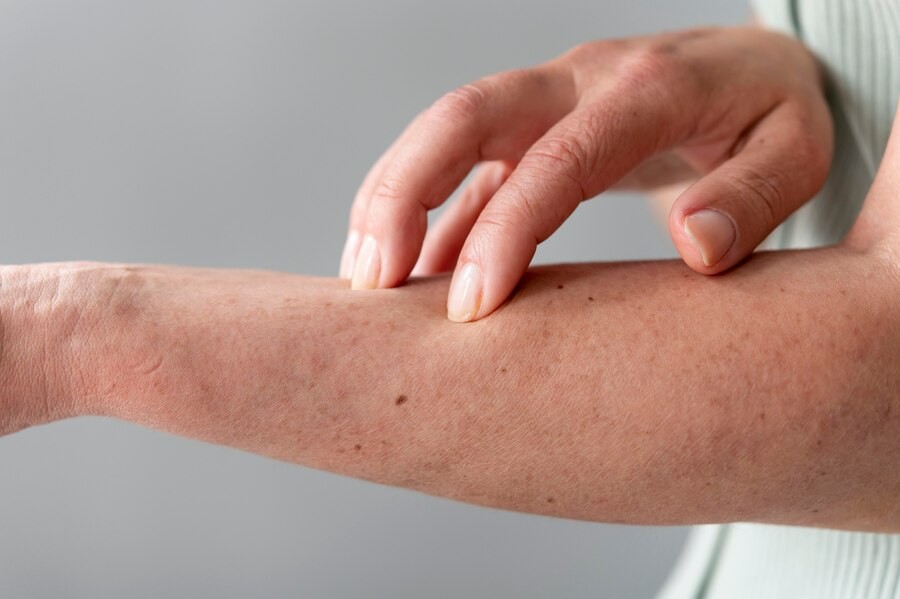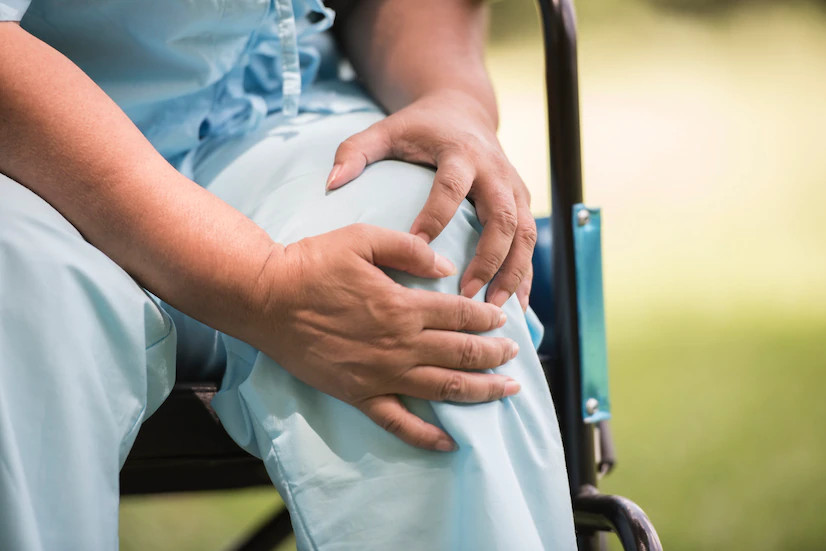Banyak orang berpikir bahwa stres hanya memengaruhi kondisi mental saja. Namun, sebenarnya stres juga dapat berdampak signifikan pada kesehatan tubuh, termasuk kulit.
Ketika Anda mengalami stres, tubuh akan merespons dengan melepaskan hormon kortisol dan memicu berbagai reaksi tubuh. Salah satu reaksi tubuh yang muncul adalah peradangan di kulit.
Tanda-Tanda Ruam Kulit yang Disebabkan Oleh Stres
Peradangan di kulit akibat stres sering muncul sebagai ruam atau gatal-gatal di kulit. Ruam dan gatal-gatal di kulit akibat stres berbeda dengan ruam yang disebabkan oleh hal lain. Berikut adalah beberapa tanda bahwa ruam di kulit Anda disebabkan oleh stres:
Muncul secara tiba-tiba
Ruam yang disebabkan oleh stres sering kali muncul secara tiba-tiba tanpa adanya penyebab fisik yang jelas. Ruam ini sering muncul sebagai respons terhadap tekanan emosional yang tinggi, seperti saat menghadapi tenggat waktu, terlibat dalam perdebatan yang menegangkan, atau menghadapi masalah yang menimbulkan stres berat.
Bercak merah disertai rasa gatal
Ruam akibat stres biasanya muncul berupa bercak-bercak merah atau kemerahan di kulit disertai rasa gatal. Area ruam biasanya kecil dan terbatas, tetapi tidak menutup kemungkinan bahwa ruam akan menyebar ke area tubuh yang lebih luas.
Rasa gatal yang muncul pada ruam akibat stres biasanya sangat mengganggu dan memunculkan keinginan untuk lebih sering menggaruk. Hal ini dapat memperburuk kondisi kulit dan menambah iritasi.
Baca Juga: Mengapa Stres Dapat Menyebabkan Nyeri dan Tekanan di Dada
Lokasi yang beragam
Ruam akibat stres bisa muncul di berbagai bagian tubuh, namun lebih sering muncul di area seperti wajah, leher, dada, dan punggung.
Muncul bersamaan dengan gejala lain
Ruam stres biasanya tidak muncul sendiri, namun muncul bersamaan dengan gejala fisik lain seperti sakit kepala, gangguan pencernaan, kelelahan, dan ketegangan otot.
Tidak membaik dengan pengobatan umum
Jika ruam di kulit tidak membaik meskipun sudah menggunakan obat-obatan antialergi, maka ruam tersebut mungkin disebabkan oleh stres. Untuk menyembuhkannya perlu dicari akar masalah atau pemicu stres itu sendiri.
Baca Juga: Jenis Penyakit yang Mungkin Disebabkan Oleh Stres
Mengatasi Ruam Akibat Stres
Untuk mengatasi ruam yang disebabkan oleh stres, sangat penting untuk melakukan beberapa hal berikut:
- Mengelola stres dengan teknik relaksasi seperti meditasi, yoga, atau latihan pernapasan
- Mendapatkan cukup tidur
- Merawat kulit dengan produk yang berformula lembut serta menjaga kelembapannya
- Menggunakan obat pereda gatal jika ruam sangat mengganggu, seperti antihistamin atau krim antiinflamasi
Ruam di kulit yang disebabkan oleh stres bisa sangat mengganggu. Apabila Anda kesulitan dalam mengatasinya, sebaiknya berkonsultasi dengan dokter atau ahli dermatologi untuk mendapatkan perawatan yang tepat.
Anda juga bisa memanfaatkan layanan konsultasi kesehatan Ai Care dengan mengunduhnya melalui App Store atau Play Store.
Mau tahu informasi seputar penyakit lainya? Cek di sini, yah!
- dr Nadia Opmalina
Taylyn Washington Harmon (2023). Stress Rashes and Stress Hives—Here's What To Know. Available from: https://www.health.com/condition/stress/stress-rash
Marissa Moore (2023). Can Stress Cause Rashes?. Available from: https://psychcentral.com/stress/stress-rash
Aaron Kandola (2024). How does stress affect the skin?. Available from: https://www.medicalnewstoday.com/articles/317631
Natalie Silver (2022). Stress Rash: Tips for Identification, Treatment, and More. Available from: https://www.healthline.com/health/skin-disorders/stress-rash
Aubrey Bailey, PT, DPT, CHT (2024). What Causes a Stress Rash and How to Prevent It. Available from: https://www.verywellhealth.com/stress-rash-5270848












